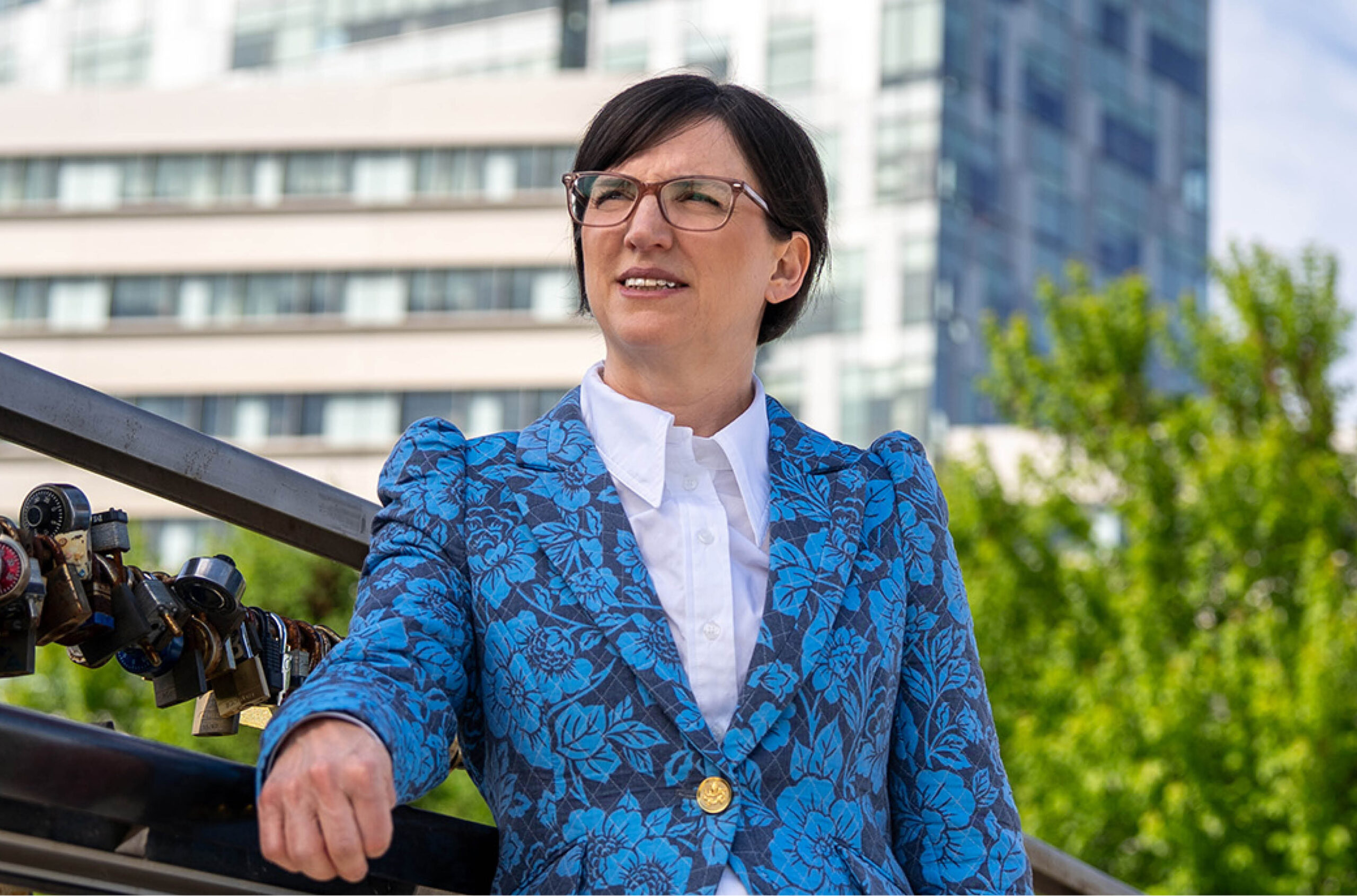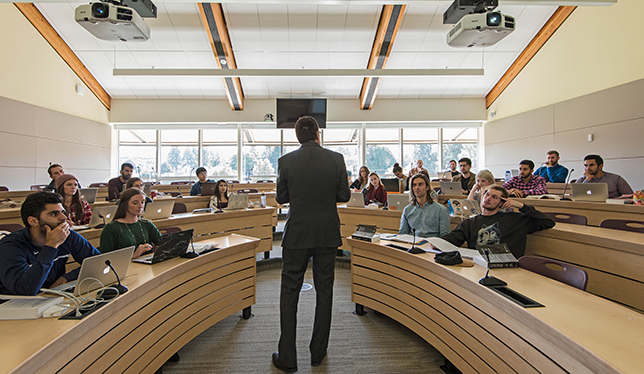Investing in online programs to meet demands of working professionals
Keypath Education helps universities access the growing audience of working professionals with high-quality online programming.

While COVID-19 created a broad range of challenges for universities, it also shed light on some of the vulnerabilities that have developed in recent years. Graeme Owens, executive vice president of Keypath Education Canada suggests that a shift in approach could provide a solution.
University Affairs: Universities have traditionally focused their programming and efforts on young adults and international undergraduates, but you think many are missing a significant opportunity. How do you think universities should adapt their approach?
Graeme Owens: Universities are well set up to attract pre-career adults and provide them with a quality education. However, one of the trends that we are seeing is stagnating enrolment. Even before the pandemic, Ontario universities alone expected to see a nine per cent drop in enrolment by 2021 over 2015 levels.
In response to these shifting demographics, Canadian universities have been putting more and more focus on attracting international students. However, with the global pandemic restricting travel and limiting student’s ability to study abroad, we’re now seeing the challenges that come from relying too heavily on international cohorts to bolster enrolment and tuition revenue.
When we look at the future of work and the types of careers that are going to be needed in our economy, we know that working Canadians of all ages are going to have to up-skill and re-skill. A recent World Economic Forum Future of Jobs Report shows that the window for reskilling employees has never been shorter, with half of working professionals expected to require reskilling in the next five years.

These trends highlight the demand for quality education and training as a means to maintain relevant skills, advance careers or unlock a new career altogether. There’s an opportunity for universities to embrace these employment trends and engage a new cohort of working professionals, creating lifelong learner pathways that will diversify their enrolment and offer more access to education for millions of Canadians.
UA: Working professionals are often at a very different stage of life than young adults. What are some of the considerations that universities need to take into account when developing programs for them?
GO: A big consideration is geographic accessibility. Working professionals are already well-established in their careers and their communities. They are not looking to pick up and move to a campus.
Universities need to think about how they can create high-quality online education that addresses this “distance deterrence.” That means adding flexibility to program delivery and leveraging smart design that brings the online learning experience to life through technology. That flexibility should also extend to other areas. Departments should consider whether there are shorter duration credentials that exist that would allow working professionals to start with something right away, master that competency and then have the flexibility to stack that into a larger credential down the line.
UA: How does this approach differ from what might be on offer at a university now?
GO: Some universities have executive education or continuing education faculties in their schools that can service working professionals. However, what we’re seeing in the market is that academia and industry leaders are more familiar with traditional credentials like degrees and diplomas that are served at the faculty level opposed to the continuing education route. While individual university faculties are increasingly interested in being in this space, they don’t necessarily have the resources, funding, capacity or expertise to take it on. So, there’s sort of this disconnect where faculties are looking to talk to this audience, but don’t know how to get started.
UA: Where should interested universities start?
GO: I think that the best place to start is with the learner, looking at skills that are in demand from an employment perspective and create programming that matches the future of work. It’s also important to understand student demand and evaluate what programs they are searching for to identify the limitations those students are going to be facing.
Universities should also consider what resources they have internally. Do they have support from their internal stakeholders? Do they have the expertise and the resources that are going to be required to take on a program like this one?
At Keypath Education, our value is not only collaborating with universities on the design component of a program, but also providing ongoing support that creates capacity. In a university environment, where there are often funding and process challenges, we can provide the expertise and the resources needed to launch and deliver the program.
UA: If a university were to work with an online program manager such as Keypath Education, what can they expect?
GO: As an online program manager (OPM), our role is to solve problems and eliminate barriers that are keeping institutions from launching new online programming. Along with design, we provide the upfront capital, staffing, resources, advertising dollars and ongoing expertise to bring online education programming to market. Throughout the program’s lifetime, we support universities to help attract students through various marketing activities. We have a dedicated team that stays with program cohorts for the entire student journey within the program.
Faculties are being pulled in multiple directions and their internal teams are already stretched thin. This partnership adds capacity for university faculties to launch brand new online programming, especially those that are geared towards a professional audience. Our team takes a lot of time to learn the university’s processes and procedures and act as an extension of their team, so we can take more things off their plate and not add to it.
At Keypath Education, we work to create a top quality student experience – one that is at the forefront of activity-based, tech-enabled, web-designed learning, while also following the pedagogical process and being rooted in learning outcomes. This attracts high quality students and drives results for the institution.
UA: Where should someone go if they want to learn more?
GO: Even before the pandemic, the demand for campus-quality online education and programming has seen rapid growth in Canada. Following trends among postsecondary institutions in the U.S. and Australia, more universities north of the border here in Canada are leveraging private sector partnerships with OPMs to invest in online-first degrees that cater to an increasing number of working professionals that require news skills and training.
For more information about how Canadian universities are leveraging OPM expertise to deliver quality online learning experiences and create new programs that meet industry demands, visit Keypath’s website.





Post a comment
University Affairs moderates all comments according to the following guidelines. If approved, comments generally appear within one business day. We may republish particularly insightful remarks in our print edition or elsewhere.